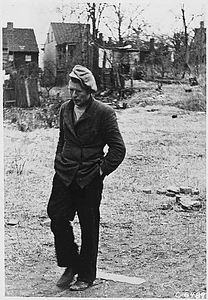
For whatever reason, I started thinking about my old teachers this past week. I didn’t have a whole lot of crazy pedagogues, to be honest (ask Alyssa) but there were a few. Namely Mr. Burnham, sixty-something, sporting a Harley Davidson, some fifty acres of South-Texas soil and a gold-digger wife. He told us he became a teacher for the hell of it.
The name of the course was “Integrated Physics and Chemistry” and, in the midst of a semester populated by sparkling gems such as “World Geography” with Mr. Westmoreland, or my one honors English course (with an uncomfortably hot blonde chick, recently graduated from Baylor with—shoot, a two year old), Burnam’s class was some weird breath of fresh air. I had him seventh period—the last class of the day—along with a sorted array of druggies, punks and rejects (you know. Usual high school stuff).
I was consistently amazed at how little he taught. The man, deeply tanned, wiry, with a smoker’s cough, would launch into long tirades about his fifteen year old son, how he just wrecked his second car, or they walked in on him having sex in his bedroom, or whatever. Most of his stories just trailed off, or devolved into talking about bedroom drama.
We came back from Christmas break to find several containers of now-fermented bits of Trix and Coco Pebbles cereal. After several increasingly-uncomfortable weeks of smelling the stuff putrefying in the corner, he dumped the whole thing into a complex apparatus and set to distilling the alcohol. He told us it was for Biology class. “Burnam’s White Lightnin’! Get it ‘fore it’s gone!” he shouted as we left.
I stayed after class one day and asked for help on an assignment, and he regarded me with this sort of wry amusement and told me he felt sorry for me. “Why?” I asked. He coughed. “Well, cause y’know, you. You—you’re not like the rest of them. You wanna learn.” He gestured toward the empty rows of desks. “And, they, uh. You know,” he said.




